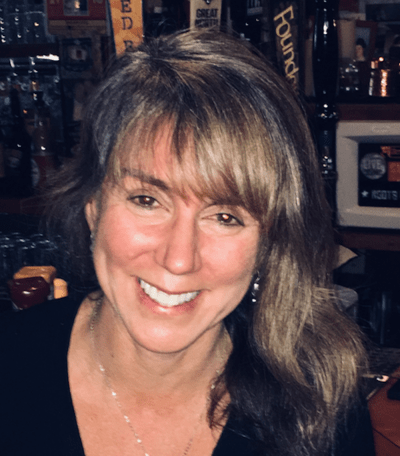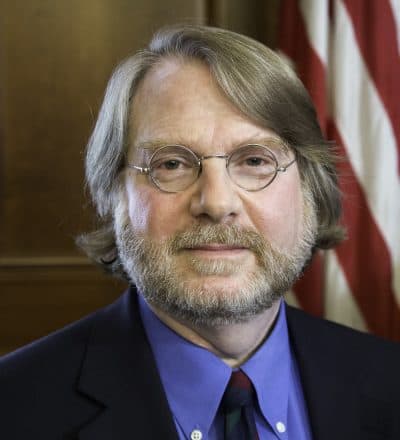Advertisement
Commentary
What 2 Driven Harvard Doctors Have Learned From Their Auto-immune Diseases
We are doctors living with autoimmune diseases. Annie is an internal medicine physician. Gene is a child psychiatrist. We're two individuals who spend our days trying to heal others, united in the knowledge that our immune systems are attacking our own cells. Our homeostasis — our bodily balance — has gone awry.
The irony of this self-destruction isn’t lost on us. We have a mission to help others and, in the process, somehow got sick.
Did we do this to ourselves? Are we somehow to blame? Is this a physical expression of our own poor self-care? Have we taken on too much, lost perspective, been too hard driving, ignored ourselves in the name of caring for others?
Or is this just bad luck? We would tell our patients it is not their fault, but it eats at us. What could we have done differently?
We will never really know, of course, but we feel we owe it to our patients, students and colleagues — and to ourselves — to step back and reflect, and to share: What have we learned on our journeys into patienthood?
Also, we have both been aware of a subtle shame in the wake of our diagnoses. There are the fears that people will see us as weak and treat us differently, as well as the societal discomfort associated with illness and disability.
In response to these fears, we feel compelled to speak out and identify ourselves as among those impacted by illness, to own our diseases as part of us and to join in solidarity with others navigating health issues.
Let's face it: Illness will touch all of us in our lives, one way or another.
Illness will touch all of us in our lives, one way or another.
How Illness Forces Us To Redefine Ourselves
So first, who are we? Or rather, how have we defined ourselves in our pasts?
We would have said: We are intense, driven and outwardly successful. We are risk-takers, self-reflective (mostly) and courageous. We are medical educators and social entrepreneurs. We are spouses and parents, caretakers and healers. We are conscious individuals who consider balancing our personal and professional lives. These are the glossy, positive bits anyway.
But illness has cracked the veneer and forced us to redefine ourselves, or at least reexamine how accurate our self-definitions were. In the wake of our diagnoses, our self-stories have had to be rewritten, and we are rewriting them still, as we all are.
Illness is an identity crisis of sorts. It crumbles the façade. Sociologist Michael Bury has described illness as a “biographical disruption.” This resonates. While the crumbling is disconcerting and disorienting, it is also an opportunity for reevaluation, clarification and rebuilding.
Maybe for driven people like us, it takes something dramatic like a serious illness to stop business as usual.
There are many similarities and many differences in our illness stories. For 17 years, Annie has been living with multiple sclerosis, a progressive neurologic disease in which the body’s immune system mistakenly attacks and damages the central nervous system.

Gene has been newly diagnosed with pemphigus vulgaris, a rare disease that sounds like (and sort of acts like) a Harry Potter curse in which auto-antibodies attack the body’s keratinocyte cells, damaging the skin and the mucus membranes and causing painful blisters and ulcerations.

Both diseases are incompletely understood. Both have no cure and variable, unpredictable courses across individuals. So both require coping with profound uncertainty.
This is hard for anyone, and perhaps a unique challenge for doctors like us who are trained to meet illness with some sort of clear and certain direction. We want answers, but there often aren’t any. We hope for prolonged remission, but ultimately, control eludes us.
We experience similarities and differences, but it is the shared lessons we are interested in. Here is what we want our patients, students and colleagues to know:
Integrating Illness Is A Process
Before we became patients, we underestimated the significance of receiving a medical diagnosis, especially of a chronic or life-altering disease, as many doctors do.
We thought we understood. In fact, we both teach medical students how to give bad news, and we delivered these diagnoses with supposed expertise, tenderness and care, acknowledging the trauma of hearing such news. But then, most often, we moved on, formulated a plan and kicked into action mode, assuming that the patient was ready to move with us. We didn’t really get it, not until we were sitting on the other side of the patient-provider relationship.
"Before we became patients, we underestimated the significance of receiving a medical diagnosis, especially of a chronic or life-altering disease, as many doctors do."
We now know that accepting a medical diagnosis, especially a life-long diagnosis with no cure, is an incremental process — one that takes time and patience. In fact, it is an ongoing, never-ending journey. That moment in the office when the diagnosis is delivered is just a beginning.
As for us, in the beginning, we responded very differently. One of us went into total denial for close to five years, carrying on with life and ignoring her disease. She only very gradually came to terms with it, working through the shame associated with her self-perceived brokenness.
One of us became consumed by his medical condition, obsessively reading every research paper on the topic, relentlessly aware of any possible symptom, side effect or recurrence, seeking all possible treatments — evidence-based, Western, Eastern, alternative — just to do something. He was overwhelmed by a need to put everything in order — schedule, belongings, household — in an attempt to manage fear and uncertainty.
We do what we need to do to survive. Sometimes this involves denial, sometimes obsession. We all have our ways of coping, and no response is wrong. What we strive for is integration, to accept our diseases as part of us — one aspect of our identities, but not all of us. This isn’t as easy as it sounds.
We Are Doing The Best We Can
We, like you, are vulnerable. We are scared. We are uncertain about our futures. We are trying to learn how to take better care of ourselves — sleep more, exercise more, eat right, forgive ourselves and cut ourselves a break for not doing it all. We're learning to say ‘no’ more and only do what feels right and authentic. We're learning how to practice self-love.
We are also learning not to struggle alone. We judiciously share our illness with others for support, understanding, and mostly, just so we don't worry alone.
Slowly, we are learning to listen to our bodies and to take care of ourselves, to let people in, to ask for help. Our diseases are hitting us over the head with the message that self-care is important: “Physician heal thyself.” We are trying to listen, to regulate our emotions and find peace and calm in the midst of a storm. Sometimes we get it right, sometimes we don’t.
Sometimes we forget our pills, push ourselves too hard, scour the internet to read how others have fared even though we know we will be bombarded with contradictory, confusing information that might make us crazy. Even as self-proclaimed evidence-based doctors, we latch onto whatever we find that might provide some semblance of comfort or hope – even if it’s not scientifically credible by our own professional standards.
We are grasping.
We find the medical system overwhelming at times, exhausting, even though we are insiders in this world. How do non-medical people navigate it? We feel fortunate we have some understanding of this culture, but in other ways, being a doctor is not helpful. We know too much — too much about what can go right or wrong — and this can make us feel crazy, more out of control, not less.
No 'Right' Answer
As doctors, we are trained to fix things, to come up with a plan of action, to write prescriptions. As patients, we have learned that it isn’t quite so black and white. There isn't a “right” and a “wrong” answer when it comes to managing our health, even when data suggest otherwise. Context matters. State-of-mind matters. Emotions matter. What others think matters.
What might seem like the most logical and sensible course of action to an outsider (and especially to our doctors) might not work for us at a given point in time. We are where we are, and we have to honor the moment, though our opinions will undoubtedly shift over time. We have learned to trust our instincts. We have to.
We don’t always listen to our doctors, and maybe they think we are acting out. Maybe we are, but we now believe more than ever before that the patient must be in charge.
We Want To Be Seen And Heard
People want to feel known and understood, attended to and accepted, and we want this from our doctors. Of course, competence and skill are important. We expect our doctors to offer opinions and to tell us what they think we should do, but we also want the freedom to disagree and to have our opinions respected. We want our doctors to listen, to serve as guides rather than directors, to meet us as fellow human beings, to be there for us when we need them.
But expectations can be complicated. It is easy to feel rejected when we reach out with a question and don’t get a prompt response. As doctors ourselves, we know how busy our physicians are, but sickness makes us forget this, at least transiently. We vacillate between identifying as patient and as doctor, and when we are more collected, we sometimes feel guilty for asking too much of our providers, or for being treated as special because we are one of them.
We Look For Silver Linings
We try to focus on the positive. What’s the alternative? We can’t completely control or predict our outcome, but we can find peace and a new direction. We try to regularly step back and thank our illnesses for what they are teaching us, and for the new opportunities they are providing.
We didn’t ask for this, but we have been kicked into a new phase of reevaluation. Who are we now? How did we get here? Where are we going? What really matters?
Without illness, perhaps we would have continued on as we were, subtly but definitively neglecting ourselves, and those we love. We have been motivated to nurture our relationships, to focus on and honor our priorities, to be brave and to stay present and take advantage of every day.
We are trying to rewrite our stories and to find new meaning, but of course it is impossible to always live in this space, to always see the good. Let's be real: Sometimes being sick just sucks. But we are trying.
We don’t have it all figured out. We are learning every day. Here’s what we do know: The divide between patient and doctor is a lot blurrier than it looks at first glance. We are all in this together, more the same than we are different.
Annie Brewster is a practicing internal medicine physician at Massachusetts General Hospital, as well as the founder and executive director of Health Story Collaborative and an assistant professor at Harvard Medical School. Dr. Gene Beresin is executive director of the Clay Center for Young Healthy Minds at MGH and a professor of psychiatry at Harvard Medical School.